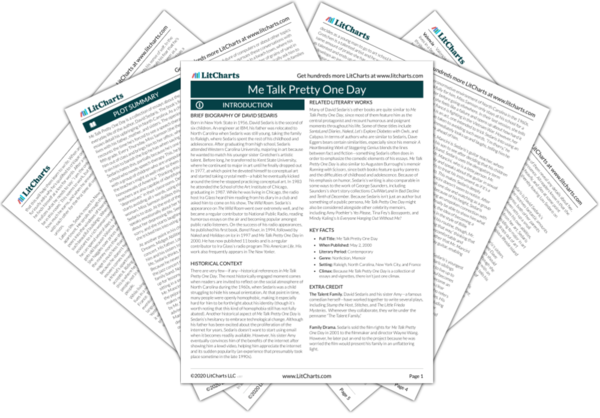It’s unsurprising that Sedaris enjoys talking to an ex-convict like Richie. After all,
Me Talk Pretty One Day is full of essays in which Sedaris examines his own interest in morbid, strange, and unconventional topics. Therefore, it makes perfect sense that he would like hearing about Richie’s experience as a murderer. During this time period, Sedaris also relishes the opportunity to present himself as a different kind of person than he really is, liking the idea that his clients think he’s dangerous. This allows him to step into a new identity, one that is menacing and ominous—two things Sedaris doesn’t normally embody. This dynamic also engages Sedaris’s interest in class, since his clients clearly associate working-class people with danger and violence, assuming that anyone who works as a mover is unpredictable and tough.


